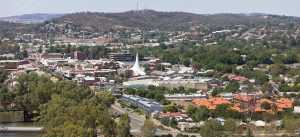
Dr Bernadette Moorhead is Lecturer in Social Work and Human Services at the Wagga Wagga campus of Charles Sturt University in New South Wales, Australia. This is the first in a series of dispatches from the academic social work community across the world as services adapt to conditions under the COVID-19 pandemic. (309 words)
Hello from Australia,
To say that social workers have faced major challenges in recent months in Australia is perhaps an understatement. The community services sector was already under significant strain at the beginning of this year, as practitioners were on the frontline of support for families and communities devastated by unprecedented bushfires. Disaster recovery and ecosocial work have been growing areas of practice in Australia, and certainly will continue to be as many communities, especially in rural and regional areas, try to recover from the trauma of the bushfires, as well as the impacts of the COVID-19 pandemic that has decimated many local economies.
Despite these crises, we are seeing a great deal of innovative practice, as well as collective action, with Australian social workers making extensive use of online platforms to share resources, provide updates and deliver professional development opportunities. Face to face contact with client groups continues in many fields, especially child welfare (in line with social distancing provisions). We have also seen a major increase in the use of technology to stay connected with service participants. An important and much needed injection of government funds across the sector has been used by some organisations to purchase devices for client groups, such as iPads and phones, in order to enhance their access to support services. However, there are still large gaps in infrastructure across the country, which makes accessing the internet a challenge for many, especially disadvantaged communities. The need for further advocacy and community development practice that improves infrastructure so that people can stay connected is at the forefront of our minds.
If you are interested in hearing more here is a 6 min podcast by the National President of the Australian Association of Social Work, Christine Craik.
Take care everyone and stay safe.
Bernadette Moorhead, Charles Sturt University, Wagga Wagga, Australia.
Dr Moorhead recently co-authored an article with Jill Manthorpe and Mary Baginsky: An Examination of Support and Development Mechanisms for Newly Qualified Social Workers Across the UK: Implications for Australian Social Work, Practice, 32:2, 145-159.

Wagga Wagga, NSW, Australia
This is the first in a series of dispatches from the academic social work community across the world as services adapt to conditions under the COVID-19 pandemic. The series is co-ordinated by Dr Mary Baginsky, Senior Research Fellow at the NIHR Policy Research Unit in Health and Social Care Workforce, King’s College London. See a listing of this Unit’s COVID-19 related work.

